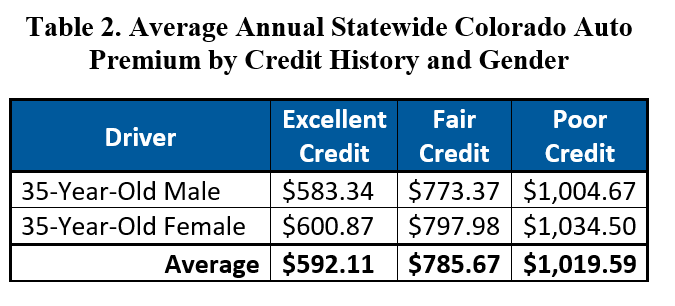Washington, D.C.—The Consumer Federation of America (CFA), Center for Economic Justice (CEJ), and Consumer Reports (CR) urge Colorado lawmakers to enact proposed legislation, SB 21-169 (Sen. Buckner), that would prevent insurance companies from using data and algorithms that result in unfair discrimination against consumers based on their race, gender, or other protected classes. The proposal addresses the impact of systemic racism on the insurance market and will expand both access to coverage and make all aspects of insurance transactions fairer.
“Colorado has an opportunity to not only stop the use of harmful factors in auto insurance pricing, but to eliminate systemic bias from the field,” said J. Robert Hunter, CFA’s Director of Insurance and a former Texas Insurance Commissioner. “This is a strong consumer protection measure that will identify and root out the systemic biases that infect the insurance market.”
SB 21-169, sponsored by Senator Janet Buckner, would require insurers to eliminate practices that treat customers differently according to their race, color, national or ethnic origin, religion, sex, sexual orientation, or transgender. It also bans insurers from using any external consumer data and information source, predictive model, or algorithm that unfairly discriminates against consumers based on these characteristics. While the bill establishes a prohibition against discrimination, it provides insurers the opportunity to demonstrate that their use of data, algorithms, or models does not result in unfair discrimination.
“Following the murder of George Floyd, many insurance company CEOs stated their commitment—and the commitment of their companies—to eliminate systemic racism in America,” said Birny Birnbaum, Director of the Center for Economic Justice. “This bill asks insurers to do their part and test their practices for racial bias. Today, we’ll see if those insurer CEOs meant what they said.”
The groups pointed to auto insurers use of numerous socioeconomic characteristics such as credit history, ZIP code, gender, education, occupation, homeownership status, and marital status to calculate premiums as examples of factors that would be subject to review under the new law. Using data[1] it acquired with auto insurance premiums for every ZIP code in Colorado from Quadrant Information Systems, LLC, CFA highlighted the following key findings that illustrate the importance of the legislation:
- Coloradans with clean driving records pay 33% more, on average, for coverage if they have a FAIR credit score rather than an EXCELLENT credit score, all else being equal;
- Drivers with POOR credit scores are charged 72% more than EXCELLENT credit drivers for the same coverage. For minimum liability coverage, that is a $427 average annual credit penalty for drivers with perfect records;
- 35-year-old WOMEN face, on average, 3% higher premiums than MEN in Colorado, even if they have the same driving history.
Consumer Reports magazine has also recently reported on the impact of insurance companies use of drivers’ occupation and level of education and how the use of these factors disproportionately harm people of color.
“It is long past time to stop this harmful bias and systemic racism in auto insurance markets,” said Chuck Bell, Programs Director of Consumer Reports. “Pricing insurance based on non-driving factors like credit history, occupation and education means many Black and Latino drivers end up paying more for coverage. By banning the use of any information, models, or algorithms that unfairly discriminate, SB 21-169 will make auto insurance more equitable and affordable in Colorado.”
[1] All data cited come from the profile of a driver who is 35 years old, unmarried, has a perfect driving record, rents their home and has a high school diploma, drives a 2011 Honda Civic LX, and has a 12-mile commute and drives this commute 5 days per week.
Contacts:
Robert Hunter, CFA, 703-528-0062
Birny Birnbaum, CEJ, 512-912-1327



